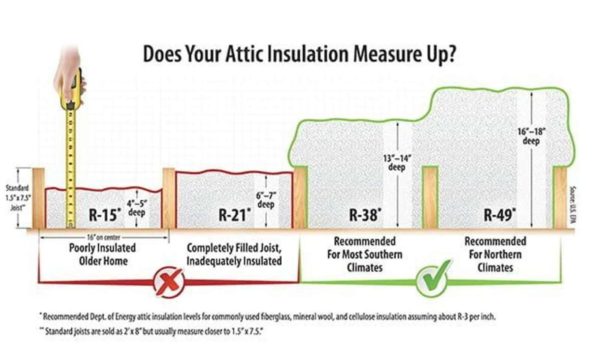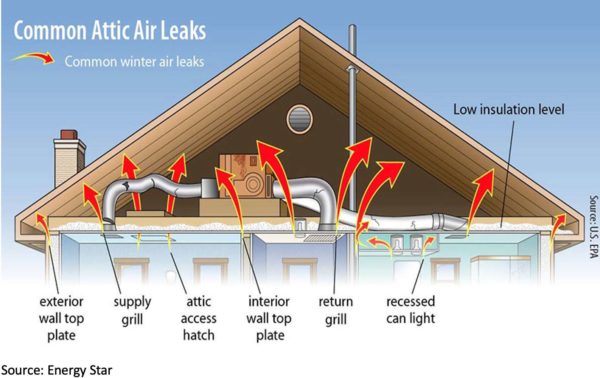This regularly-scheduled sponsored column is written by the Arlington Initiative to Rethink Energy team (AIRE). This county program helps you make smart energy decisions that save you money and leaves a lighter footprint on the environment.
As we said in our last post, 9 out of 10 homes in the U.S. are under-insulated. In homes across Arlington, poorly sealed and under-insulated attics are taking money out of homeowners’ pockets in the form of high utility bills.
Now is a good time to double-check your rafters and attic space to ensure they are properly insulated against energy leakage.
To encourage Arlingtonians to take control over their high utility bills this heating season, the U.S. Environmental Protection Agency’s (EPA) ENERGY STAR program is promoting its annual “Rule Your Attic!” campaign.
Adding insulation and sealing air leaks in your attic can help you save up to $200 per year on your home’s annual energy bills and keep you more comfortable. You can also take advantage of the tax credit for insulation before the end of the year!
In addition to energy savings, other benefits to sealing and insulating include: reduced noise from outside; less pollen, dust and pests entering the home; and better humidity control.
Measure Your Insulation
This fall, take the first step to savings by measuring your attic’s insulation. This infographic from the EPA is a good guide to how much insulation your attic should have. If you can see the ceiling joists, you definitely don’t have enough insulation in your attic.
Seal and Insulate
If you determine your attic needs more insulation, install unfaced rolls or batts over the existing insulation; or rent a blower from a home center to blow loose fill insulation into the space.
While you’re in the attic, check for any leaks. Even if you have adequate attic insulation, sealing attic air leaks will enhance its performance and make your home more comfortable.
Common sources of air leaks:
- Behind kneewalls
- Attic entry hatch
- Wiring holes
- Plumbing vents
- Open soffit (the boxes that house recessed lighting)
- Recessed lights
- Furnace flue or duct chaseways (the hollow box or wall feature that hides ducts)
- Basement rim joists (where the foundation meets the wood framing)
- Windows and doors
Additional Resources
Have more questions about insulation, air sealing or home renovations? Contact us at [email protected].




